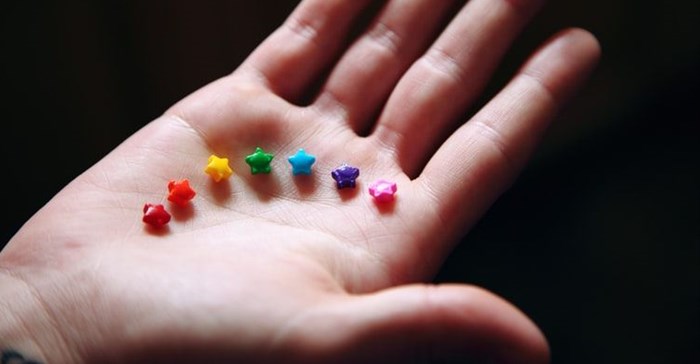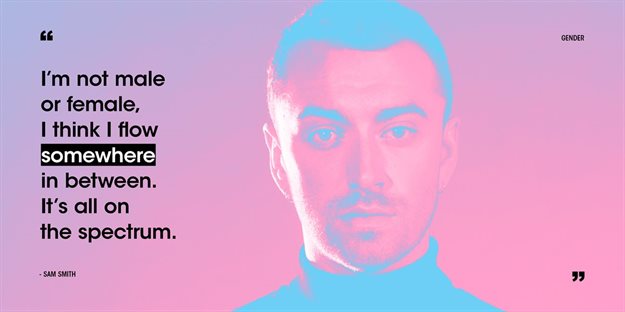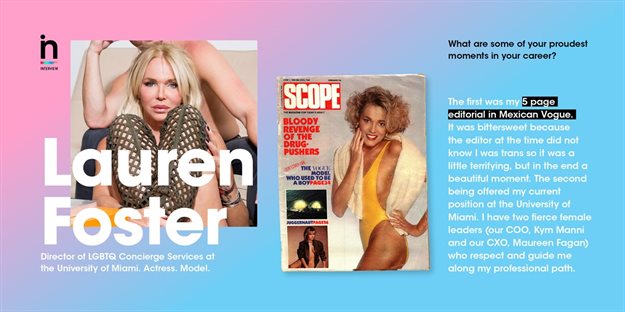This week, I'm looking at our understanding of gender, something which is so in flux at the moment that it's extremely difficult to have clarity on. To try and get a handle on it, I spoke with a number of people at the forefront of our new understanding of gender.
Lauren Foster transitioned physically from male to female in the 1980s, she was completely ahead of the curve, a true pioneer of how we understand gender. Much of what we are discovering about gender and our understanding of it has shifted only over the past decade.
It’s only as recently as 2010, that many of us – indeed society at large – have been prepared to accept there are people who don’t identify as ‘male’ or ‘female’, but as something else. Two has become many.
To try to unpack the subject, I spoke to people who are part of the change. Yes, to Lauren Foster, but also to Tash, a young man only at the beginning of his transitioning journey. Something became very clear after these conversations; we cannot actually claim to ‘understand gender’. The concept of gender in 2020 is too fluid, and the shifting tide of identity will broker new and fascinating cultures. While some might be afraid of, or even hostile to these changes, we cannot deny that people who do not identify with a binary interpretation of gender live among us.
So, Sam Smith recently came out as being genderless, that is, that he/she/they consider himself/herself/themselves genderfluid and that the pronouns that refer are more accurately ‘they’ and ‘them’. (In the process of writing this sentence, I misgendered Sam three times. It’s a very challenging process to adjust one’s thinking.)
Pronouns are the first step in gender justice, identity politics is a huge issue globally and those who don’t conform to gender norms have stated that as their gender identity does not reflect them, they reject those gendered pronouns assigned to them at birth.
In 2014, Facebook shifted away from using strictly male/female identifiers and created another 48 more for users to choose from. This list eventually topped 71, until the social media platform decided to create a free-form field where users can add genders to the list.
If Facebook is any indicator, and it often is, the need for clarity regarding gender is hugely important in society as well as in business.
Something that has come to the fore in recent years is that role models and representation is incredibly important, this includes the very gendered world of toys. Brands like Barbie have been under the spotlight for decades for setting unrealistic and damaging stereotypical standards for little girls and women. In September last year, Mattel released a range of Gender Neutral Barbies that give children the option to create a doll that represents them more closely.
In June 1984, Scope magazine put Lauren Foster on the cover. Seeing a scantily clad woman on the cover of that magazine was nothing special. What was who that woman was. Born a biological boy, Lauren Foster went through her transition in the 1980s and found herself not only on the cover of Scope but Vogue Magazine in Mexico.
When asked whether she realised the impact of her actions in the1980s Lauren said:
...didn’t realise at that time that there was a spotlight on me. I do, however, think it’s important to keep sharing our stories. They’re part of the social fabric. I grew up in a loving family in Durban who encouraged me to live my truth. I was just another girl, enjoying my teens. I was very bold in my teens, without actually realising it. Only now do I know that by telling my story I was shifting the gender narrative in society. It has always been my goal to normalise the trans experience.
Podcast guest Tash Garisch wrote and acted in a play called ‘Ego’ hosted at the Baxter Theatre in Cape Town. In that play. his character states forcefully:
I’m so sick of talking about gender, can’t I just fucking live?
Tash’s appearance on the podcast is one of the most extraordinary and interesting conversations I’ve had. His journey as he switched from being female-identifying to male-identifying is staggering. When we consider all the ways we behave, and how we are behaved towards because of our gender, consider how difficult it is to not only feel separate to that gender … but then having to extricate yourself from it, both personally and societally as you transition out of it.
“Act like a lady … god I hate that phrase” - Tash Garisch






































